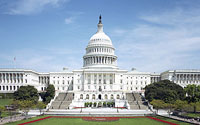Testimony on Russian-American Relations on the Question of Chechnya

(Andranik Migranyan testimony – House Committee on Foreign Affairs, Subcommittee on Europe, Eurasia, and Emerging Threats, Subcommittee on Terrorism, Nonproliferation, and Trade – April 26, 2013 – http://foreignaffairs.house.gov/hearing/joint-subcommittee-hearing-islamist-extremism-chechnya-threat-us-homeland)
Joint Subcommittee Hearing: Islamist Extremism in Chechnya: A Threat to the U.S. Homeland?
Prepared Testimony of Andranik Migranyan Director of the Institute for Democracy and Cooperation, New York
U.S.-Russian relations on Chechnya have a complicated history. And, unfortunately, for a long time, there has been a common lack of understanding of the events in Chechnya. By contrast, immediately following 9/11, the Russian side expressed readiness for active cooperation with the Bush Administration against Al-Qaeda, the Taliban, and other Islamist terrorist groups.
America has failed to understand Chechen terrorism until it faced homegrown terrorism on its own soil: over the years, the media and political circles invoked the activities of Russian and Soviet authorities from decades past to explain Chechen acts of terrorism against Russia as retaliation for injustice. American homegrown terrorists also claim to retaliate against the wars in Iraq and Afghanistan, or alleged U.S. war against Islam, but no American would buy this excuse to justify the slaughter of civilians. The point of departure in our cooperation should be that terrorism against innocent civilians cannot be justified, no matter what.
The Russian side has never received full understanding on the part of its American partners of its fight against Chechen terrorism. Russian actions in Chechnya were primarily criticized in the Western media, and in Western political circles, as they were seen through the prism of human rights violations and the excessive use of force. There was a potent attempt to separate the American fight against Islamist terrorism from the Russian fight against Chechen terrorism that took place within Russia’s borders.
In addition, Russian efforts to get extradition orders for some Chechen terrorist leaders that moved to the UK, such as Akhmed Zakayev, self-proclaimed Prime Minister of the Chechen Republic of Ichkeria (Chechen separatists call Chechnya “Ichkeria”), or to the U.S., such as Ilyas Akhmadov, Foreign Minister of the Chechen Republic of Ichkeria, who, by the way, was granted asylum in Boston, received neither understanding nor support by the American and British sides. As if that were not enough, sadly, many Western countries preferred to call the terrorists and cut-throats “freedom fighters” oppressed by the Russian authorities.
This last point was articulated by President Putin in his annual direct line with the public on April 25th. He was translated by the Russian media as having said, “I was always appalled when our Western partners and the Western media called the terrorists, who did bloody crimes in our country, ‘insurgents’, and almost never ‘terrorists.’ They [the terrorists] were receiving help, informational, financial and political support. Sometimes directly and sometimes indirectly. And we were saying that we must do the job and not be content with declarations proclaiming terrorism a common threat. Those two have proved our position all too well”
The attacks by the Tsarnaev brothers in Boston, as well as the 9/11 attacks, have provoked feelings of solidarity with the American people and especially with the citizens of Boston among the Russian people and Kremlin leadership. Just as he did in 2001, President Putin expressed his readiness to cooperate with the U.S. government to uncover all the details that led to the tragedy in Boston and, as far as I know, the secret services of both countries are now actively working together on this.
It is crucial to point out that the Russian side and Russian secret services tracked the contacts of the Tsarnaevs and turned to the American authorities so that they could investigate them. Unfortunately, the evident remaining distrust between the two countries and the doubts of the American side that Russia is indeed combating Chechen terrorism in the Caucasus must have caused the authorities to not take the warning seriously enough. Today, we no longer need to strive to convince anyone that Chechen terrorism has crossed the borders of Russia. The people of Boston felt it for themselves. The Russian media and Russian secret services have information of Chechen Islamists and Islamists from other regions of the North Caucasus having joined the ranks of jihadists in various parts of the world. There is even information that they fight in Syria on the side of the opposition and against the legitimate government.
I would like to believe that after the tragedy in Boston, the two countries and their secret services will be able to overcome, even if only a little, the distrust between them when it comes to evaluating terrorist threats, and that there will no longer be a dividing of terrorists into “good” and “bad,” “ours” and “theirs.” I would also like to believe that our secret services will work together even more closely in the fight against the terrorist threat, which, like a tumor, metastasizes around much of the globe.
We have to understand that Russia and the U.S. have overlapping interests, but also disagreements. After Guantanamo and Abu Ghraib, not everyone in Russia believes that American secret services consist of knights on white horses. But our imperfections should not prevent us from realizing that we are facing a common enemy, and to cooperate against it is both common sense and inherently moral.
